
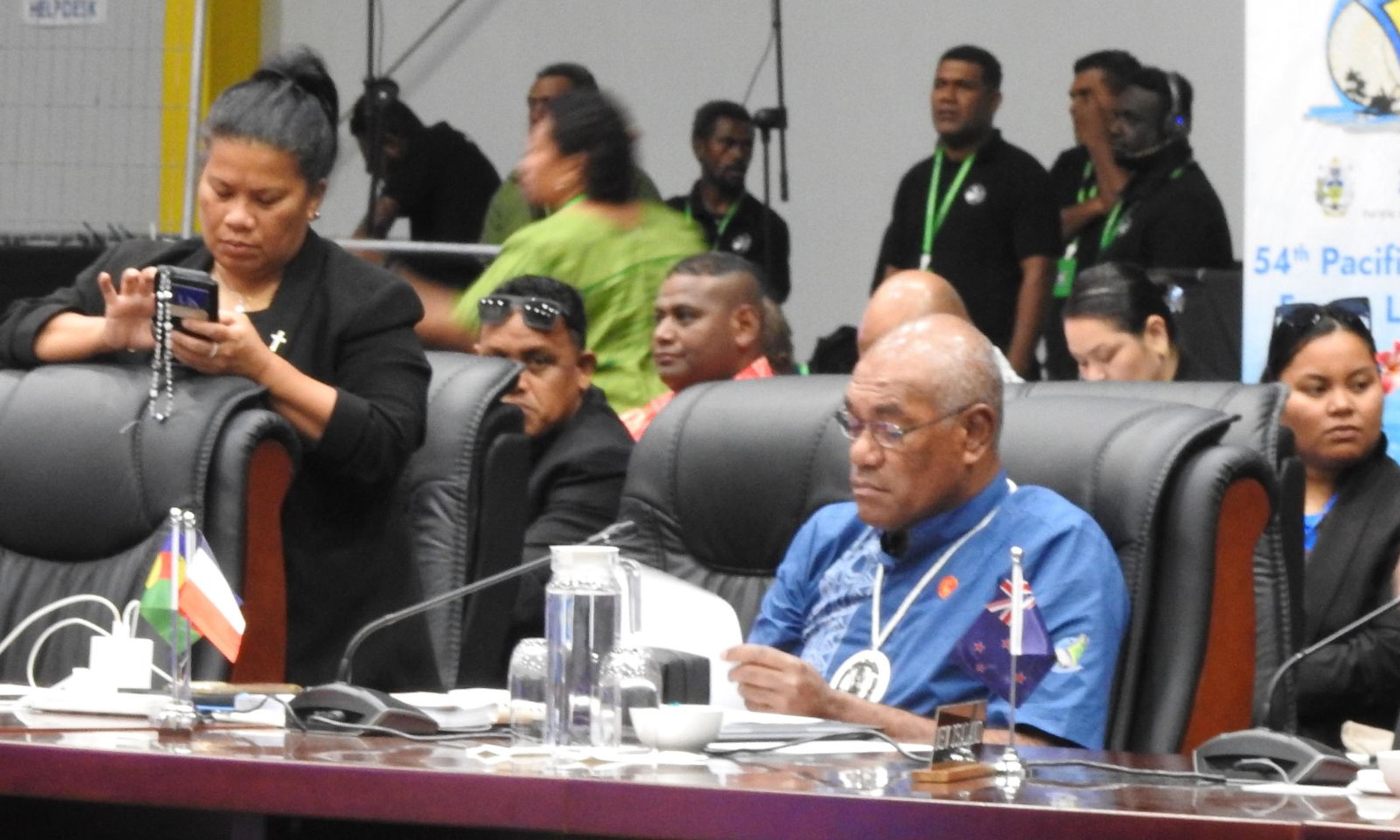
New Caledonia President Alcide Ponga at the Pacific Islands Forum Leaders Meeting in Honiara last week.
Photo/PMN News/Ala Vailala
Political turmoil in Paris creates rippling effects in New Caledonia's quest for independence
As Pacific leaders emphasised the need for unity and stability at their Forum in Honiara, New Caledonia's upcoming provincial elections and discussions on self-rule hang in the balance.

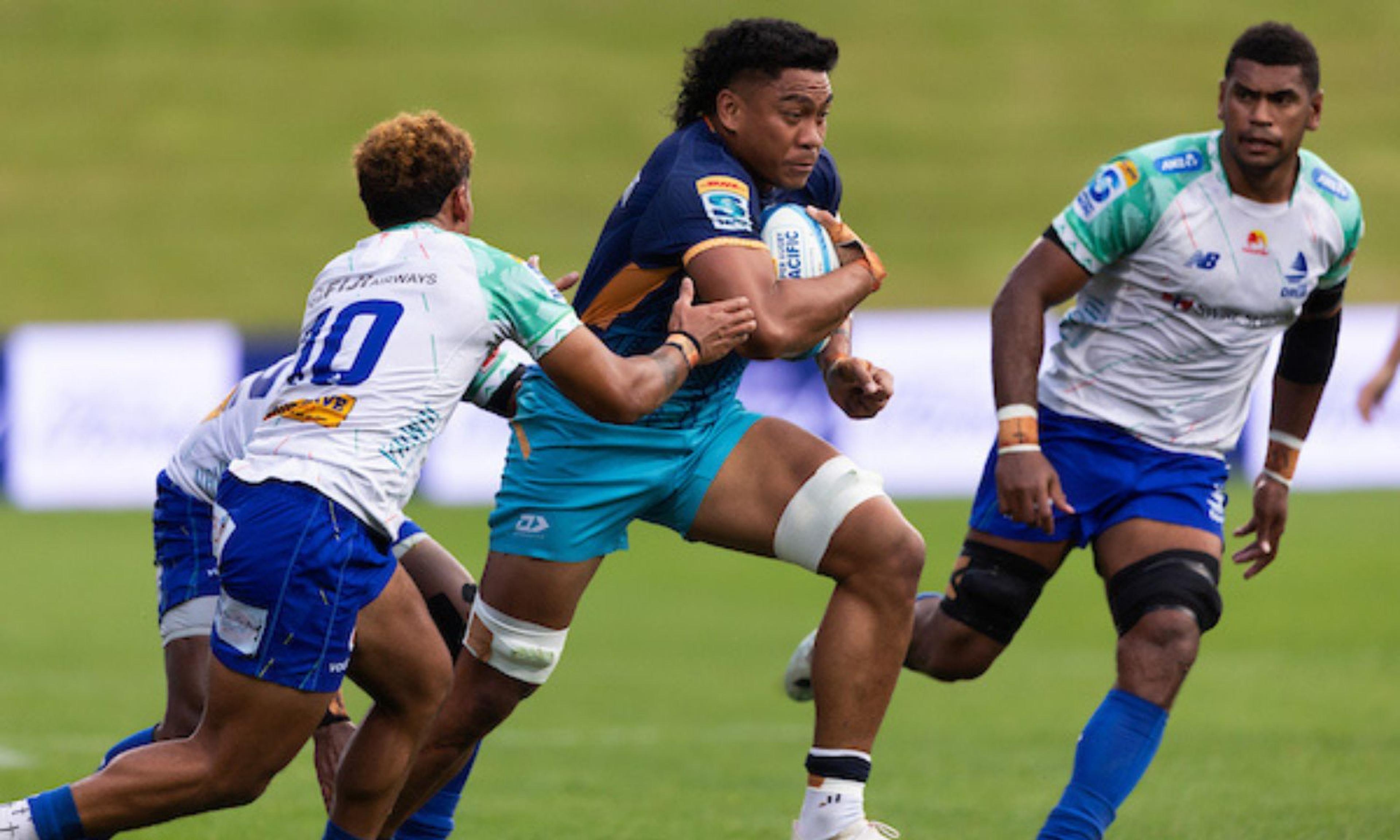
Last-gasp drama and big statements set up Pacific blockbuster in Super Rugby opener

A.R.T sets new Pacific music pace with ‘First Thursday’ releases



Last-gasp drama and big statements set up Pacific blockbuster in Super Rugby opener

A.R.T sets new Pacific music pace with ‘First Thursday’ releases

When New Caledonia's President, Alcide Ponga, arrived in Honiara last week for his first Pacific Islands Forum Leaders Meeting (PIFLM), the French government in Paris was facing a major crisis.
The upheaval follows a confidence vote in the French National Assembly that resulted in Prime Minister François Bayrou losing his position. After the vote a week ago, which ended with 364 votes against him and only 194 in support, Bayrou faced the prospect of resigning.
For French President Emmanuel Macron, who has already had six Prime Ministers since he took office in 2017, the choices are limited. He could appoint a new Prime Minister or call for new elections, but his party doesn't have enough votes to be secure in the National Assembly, and even elections might not change that.
Sébastien Lecornu, 39, has been appointed to replace Bayrou and took office during a handover ceremony last Wednesday. Lecornu has experience with New Caledonia, having served as Minister for Overseas Affairs from 2020 to 2022, during which he oversaw three self-determination referendums held between 2018 and 2021.
Many French citizens are unhappy, with polls showing that about two-thirds want Macron to resign, despite the next presidential election being set for 2027.
Recent large protests against Macron were held on 10 September, including a major trade union strike planned for this Thursday.
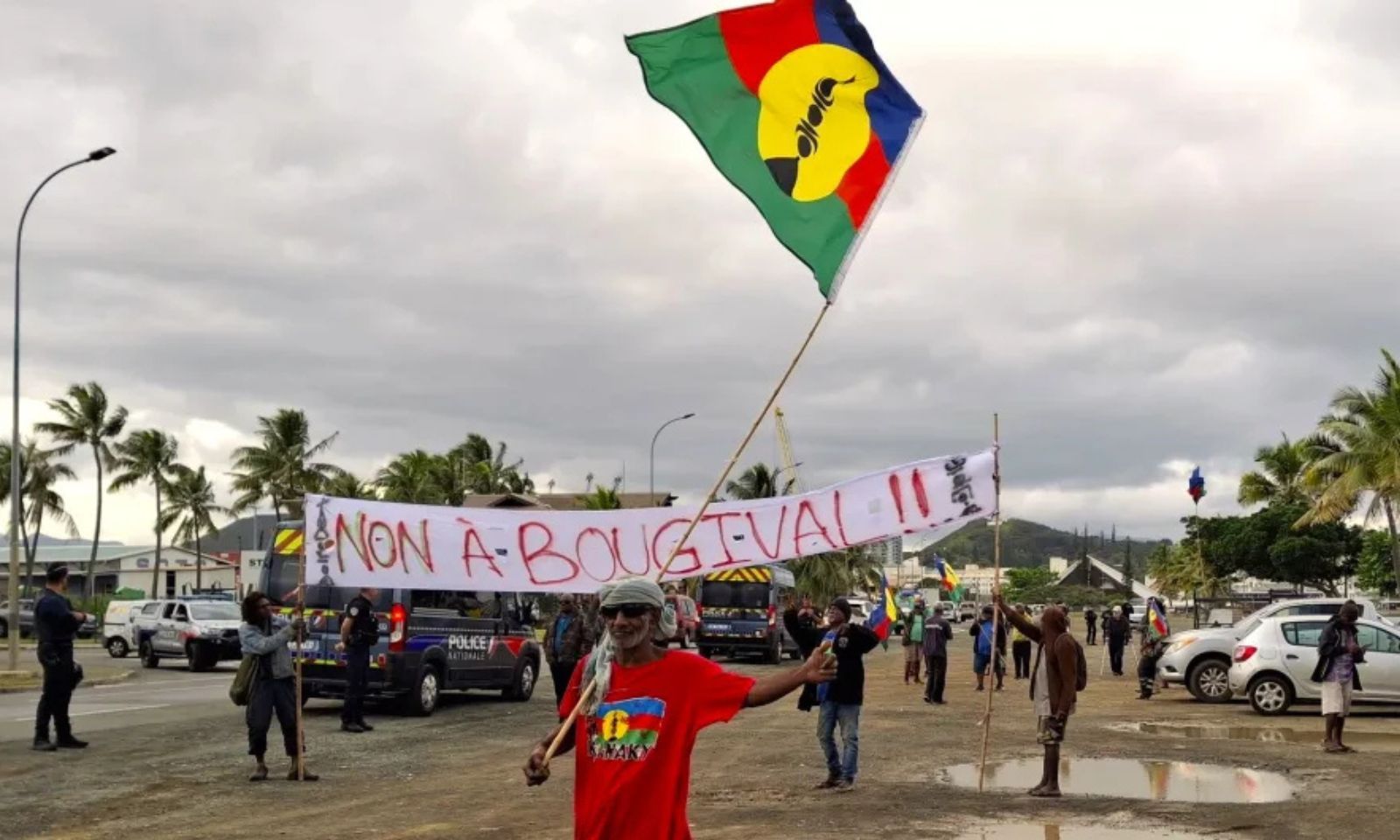
The 13 May 2024 deadly riots resulted in 13 deaths, dozens of injuries, hundreds arrested and damage to the economy totalling billions of euros. Photo/FLNKS Indépendantistes et Nationalistes
A poll conducted last month by Elabe reported that if Bayrou's government lost the Assembly's confidence, many French people would support appointing a new Prime Minister (81 per cent), dissolving the Assembly (69 per cent), and even seeing Macron step down (67 per cent).
During the Pacific leaders' meeting in Honiara, New Caledonia was highlighted as a region going through a crucial political period, especially regarding its independence and governance.
In a Communiqué released by the leaders, they emphasised the importance of unity and stability in the French Pacific territory, committing their support to ongoing discussions around the Bougival Accord - an agreement aimed at negotiating New Caledonia's future.
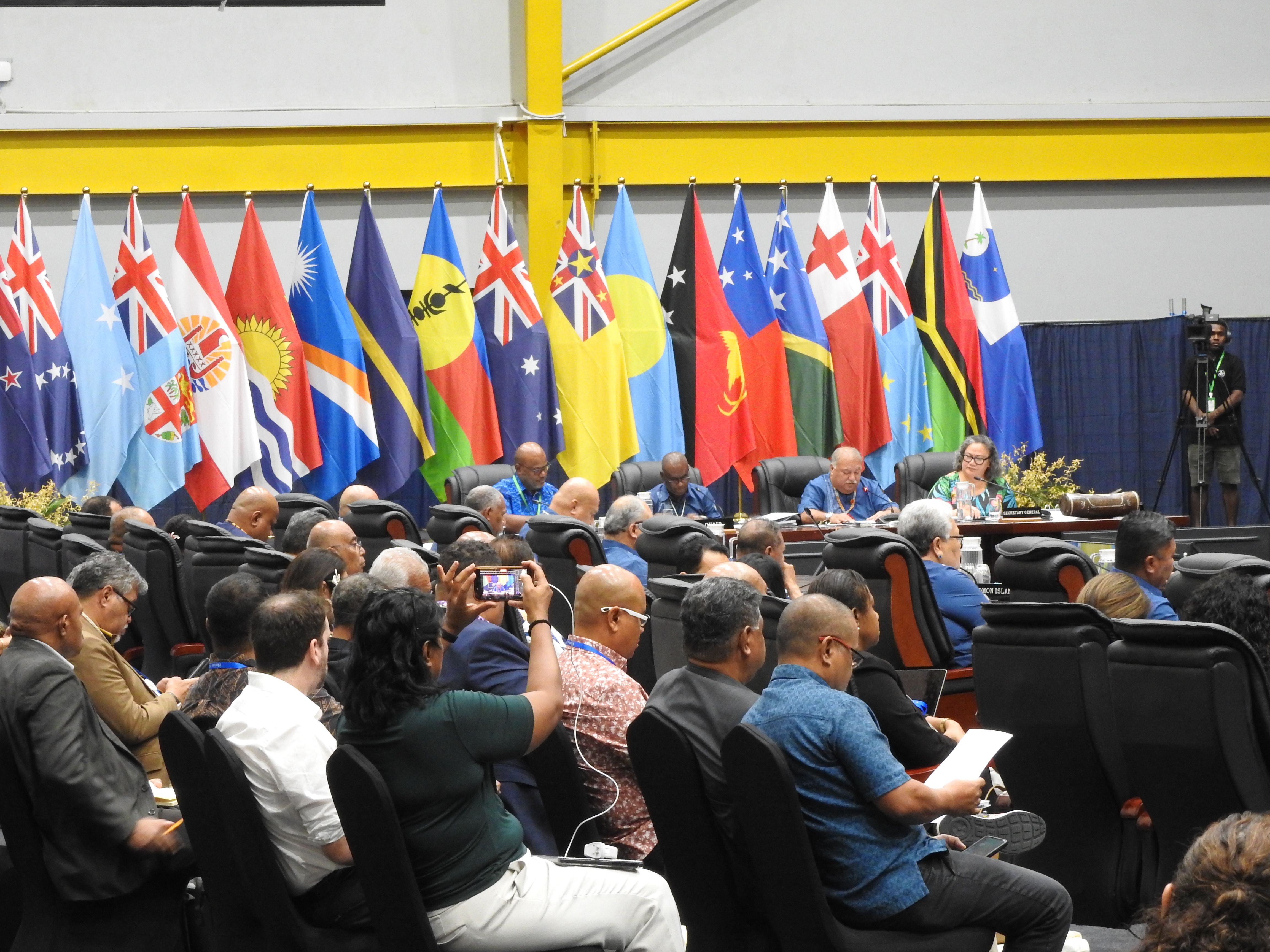
The Pacific Islands Forum meeting in Honiara last week. Photo/PMN News/Ala Vailala
The leaders were committed to promoting inclusive conversations and a peaceful transition towards a new political era. They also recognised the MSG's stance on New Caledonia, which reflects the interests of neighbouring regions.
Key points from the PIF leaders' meeting on New Caledonia includes:
Acknowledged as being at a “critical juncture” in its political development.
Visited by the Forum Troika Plus, indicating high-level regional concern and engagement.
Discussions are ongoing around the Bougival Accord, indicating a negotiated process.
Inclusive and peaceful dialogue is being strongly encouraged.
The Melanesian Spearhead Group’s decision is noted, signifying wider sub-regional attention.
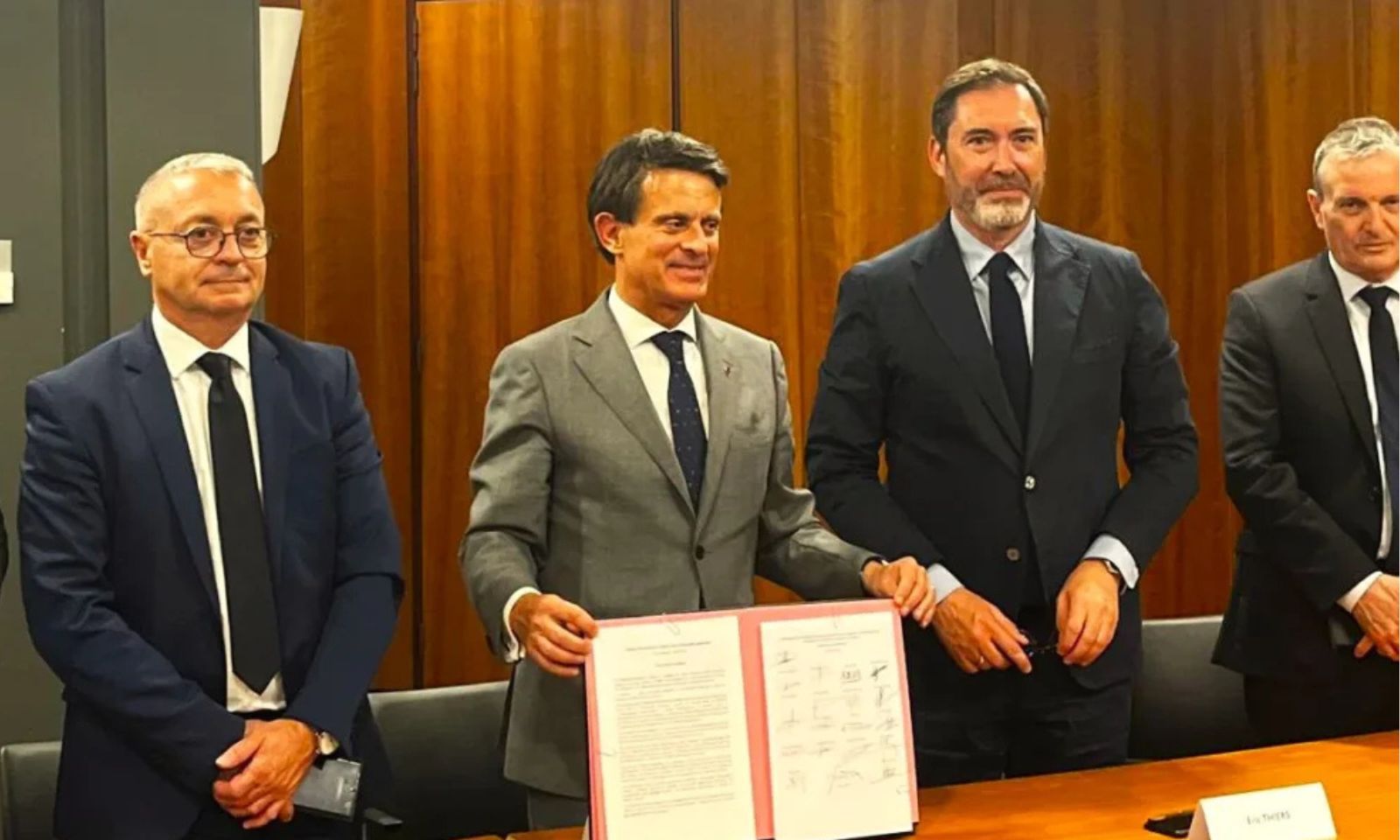
Manuel Valls, second from left, France's Minister for Overseas in the Bayrou government, shows signatures on the last page of New Caledonia’s new agreement Photo/Facebook
The defeat of the Bayrou government in Paris also carries major implications for France’s overseas territories, especially New Caledonia.
New Caledonia’s representatives in the French National Assembly were divided, with a loyalist deputy, Nicolas Metzdorf, supporting Bayou, including French Polynesia’s Moerani Frébault and Wallis and Futuna’s Mikaele Seo.
But the majority, especially those favouring independence, including New Caledonia’s second deputy Emmanuel Tjibaou, who is president of the largest independence party, Union Calédonienne, also voted against Bayou.
One reason the government faced backlash was Bayrou's proposed budget cuts, which upset many. A new government must create a budget by December, but delays could hinder much-needed economic support for New Caledonia, especially after a turbulent period marked by protests last year that severely affected jobs and local businesses.
During the political unrest in May 2024, which resulted in 13 deaths and dozens of injuries, many jobs were lost, tourists stopped coming, and the important nickel industry faced significant disruptions, including the closure of a major smelter.
Delays in forming a new French government could further complicate discussions around the Bougival process, which aims to replace the current governance framework established by the 1998 Noumea Accord.
Watch Pacific media expert on New Caledonia, Nic Macllelan's interview with PMN News Political Reporter 'Alakihihifo Vailala below.
Before the recent parliamentary vote, French Overseas Minister Manuel Valls was working on the Bougival process, but with his departure from the government, the future of these negotiations remains uncertain.
Valls had set out a tight timetable to implement the draft Bougival agreement, which must be approved by the French Senate and National Assembly, as well as a joint sitting of both houses of parliament, before being put to a referendum in New Caledonia in February.
But can this happen with the current crisis in Paris? New Caledonia’s provincial elections are due to be held on 30 November (already delayed from May 2024), but the proposed delay of the elections until May/June 2026 requires legislation in the French parliament.
The FLNKS will also have a vital role in shaping the region's political landscape moving forward.